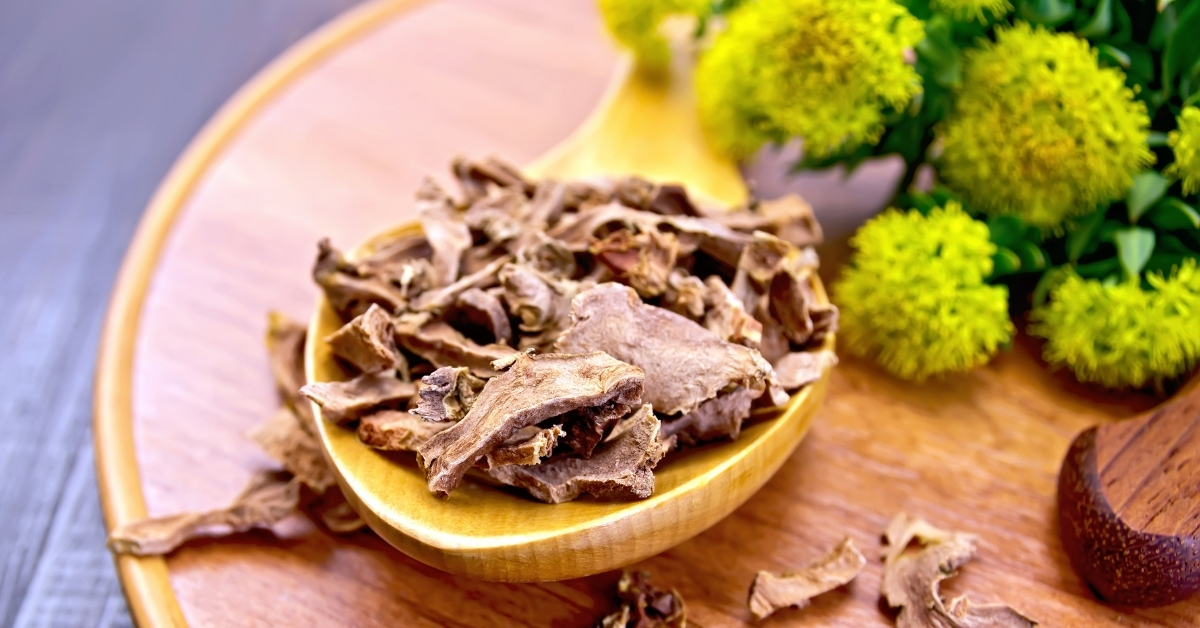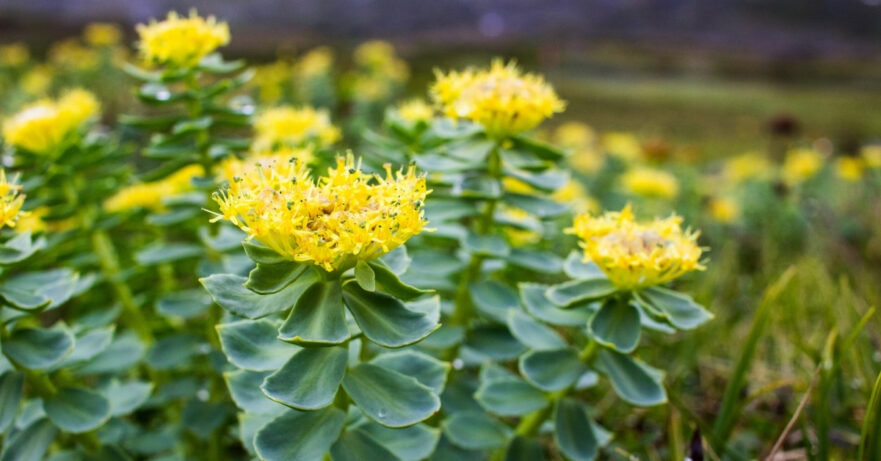In this monograph about rhodiola rosea:
📖 Introduction | 🌱 Botanical Description | 📜 Traditional Uses | 🔍 Phytochemistry | ✨ Applications and Uses | 🛡️ Safety Profile
📖 Introduction
Rhodiola rosea, commonly known as golden root or arctic root, is a perennial herb valued in herbal medicine for its adaptogenic properties. This herb is known for enhancing physical and mental endurance, making it a noted plant in natural health practices.
| English Name | Rhodiola rosea or Golden root |
| Latin Name | Rhodiola rosea |
| Parts Used | Root |
| Traditional Uses | Enhancing energy and mental performance, adapting to stress |
| Herbal Actions | Adaptogen, antidepressant, tonic |
🌱 Botanical Description
Scientific Classification
Rhodiola rosea belongs to the Crassulaceae family.
Physical Characteristics
The plant features stout stems, with blue-green, fleshy leaves and yellow to red flowers. It typically grows to a height of 2.0 to 15.7 in.
Natural Habitat and Cultivation Details
Native to the cold regions of Europe and Asia, including the Arctic, the mountains of Central Asia, and parts of North America, Rhodiola rosea thrives on sandy soil in high-altitude areas. It is usually harvested for its roots, which are believed to contain most of its bioactive compounds.
📜 Traditional Uses
Traditionally, Rhodiola rosea has been used to combat fatigue, improve mental clarity, and resist high-altitude sickness. Its role in folklore is significant, especially among the Vikings, who reportedly used it to enhance physical strength and endurance. This herb has a long history of use in traditional medicine for increasing endurance, work productivity, and longevity.

🔍 Phytochemistry (Active Constituents)
Rhodiola rosea contains several key components that are thought to contribute to its medicinal benefits:
- Salidroside: Believed to help combat fatigue and mental fatigue.
- Rosavin: Found exclusively in Rhodiola rosea, this compound is suggested to improve mood regulation and enhance energy. It plays a significant role in the plant’s adaptogenic properties, helping the body adapt to stress.
- Rosarin and rosin: These compounds are associated with the plant’s adaptogenic effects. They contribute to the plant’s ability to help the body resist various stressors, improving overall resilience and endurance.
These components work synergistically to provide the adaptogenic and health-enhancing effects for which Rhodiola rosea is known.
✨ Applications and Uses
Rhodiola rosea is utilized in herbal medicine to:
- Enhance mental performance and focus: Its adaptogenic properties are believed to help improve concentration and memory. Studies indicate that Rhodiola can help reduce fatigue and improve cognitive functions, such as attention and memory, particularly under stress.
- Support physical endurance: It is popular among athletes and physically active individuals to increase stamina. Research shows that Rhodiola can improve physical performance and reduce exercise-induced muscle damage and fatigue.
- Manage stress: Rhodiola helps balance the body’s stress hormones, providing a natural remedy for stress relief. Its adaptogenic properties help the body manage both physical and psychological stressors, contributing to overall mental and physical health.
🛡️ Safety Profile
Rhodiola rosea is generally considered safe for most adults when used in the recommended dosages.
Potential side effects are mild and may include dizziness and dry mouth. However, due to its effects on neurotransmitter levels, individuals with bipolar disorder or those taking antidepressants should use it cautiously. Pregnant and breastfeeding women should avoid using Rhodiola rosea due to insufficient safety data.
Consulting a healthcare provider before beginning any new herbal regimen is recommended to prevent potential interactions.
